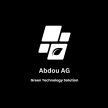The Advantages and Challenges of Blockchain Adoption in Finance
This article could explore how blockchain technology can improve the efficiency and security of financial transactions, but also delve into some of the obstacles that must be overcome for widespread adoption.
Blockchain technology has been a buzzword in the finance industry for several years now, and for good reason. This revolutionary technology has the potential to transform traditional financial systems by improving efficiency, security, and transparency. However, blockchain adoption in finance also comes with its own set of challenges.
Advantages of Blockchain Adoption in Finance:
Security: One of the primary advantages of blockchain technology is its inherent security. The decentralized nature of blockchain networks makes it difficult for hackers to breach the system, as there is no central point of failure. Additionally, the use of cryptographic protocols ensures that data is kept private and tamper-proof.
Efficiency: Blockchain technology can streamline many financial processes, such as settlement, clearing, and reconciliation. By removing intermediaries and automating processes, blockchain can reduce transaction times and costs, ultimately increasing efficiency and reducing the risk of errors.
Transparency: Blockchain provides a transparent and immutable record of transactions, enabling stakeholders to track and verify the authenticity of data. This can help reduce fraud and improve accountability, which is especially important in the finance industry.
Accessibility: Blockchain technology can provide access to financial services for individuals who have historically been excluded from traditional financial systems. Blockchain-based platforms can allow people to transact securely and affordably, without the need for a traditional bank account.
Challenges of Blockchain Adoption in Finance:
Scalability: Blockchain networks can struggle to handle large volumes of transactions, which can slow down the network and increase costs. This is a significant challenge that needs to be addressed for blockchain to be adopted on a large scale in the finance industry.
Regulation: The finance industry is highly regulated, and blockchain adoption must comply with these regulations. However, regulatory frameworks for blockchain are still in their infancy, which can create uncertainty and slow down adoption.
Interoperability: There are many different blockchain networks and protocols, and they are not necessarily compatible with each other. This can create challenges when trying to integrate different systems or share data between them.
Perception: Despite the advantages of blockchain, there is still some skepticism and resistance to its adoption in the finance industry. Some stakeholders may be hesitant to adopt new technology, especially if they perceive it as risky or unproven.
Conclusion:
Blockchain technology has the potential to transform the finance industry by improving efficiency, security, and transparency. However, its adoption also comes with challenges, such as scalability, regulation, interoperability, and perception. Overcoming these challenges will require collaboration between industry stakeholders, regulators, and technologists. With the right approach, blockchain adoption in finance could usher in a new era of innovation and growth.
Certainly! Here's some additional information about the advantages and challenges of blockchain adoption in finance:
Advantages:
Cost Reduction: By eliminating intermediaries and automating processes, blockchain can reduce costs associated with traditional financial systems, such as fees and transaction costs. This can be especially beneficial for cross-border transactions, which can be expensive and time-consuming.
Faster Settlement: Blockchain technology enables near-instant settlement of transactions, compared to traditional systems which can take several days to settle. This can help reduce counterparty risk and improve liquidity.
Auditing: Blockchain provides a transparent and immutable record of transactions, which can be audited in real-time. This can help improve regulatory compliance and reduce the risk of fraud.
Challenges:
Adoption: Blockchain adoption in finance is still in its early stages, and many financial institutions may be hesitant to adopt new technology due to the risks associated with it. Additionally, legacy systems and processes can make it difficult to integrate blockchain technology.
Privacy: While blockchain provides transparency, privacy can be a concern for certain financial transactions. This is particularly true for transactions involving sensitive or personal data, which may need to be protected.
Governance: Blockchain networks are decentralized, which can make it difficult to manage and govern. This is especially true for public blockchains, which are not controlled by a central authority.
Education: Blockchain is a complex technology, and there may be a lack of knowledge and understanding among financial professionals about how it works and its potential applications. Education and training programs will be necessary to ensure successful adoption and implementation.
Conclusion:
Overall, the advantages of blockchain adoption in finance are significant, and the challenges can be overcome with the right approach. However, it will require collaboration between financial institutions, regulators, and technology providers to develop the necessary infrastructure, regulatory frameworks, and standards to support widespread adoption. As blockchain technology continues to evolve and mature, its potential to transform the finance industry becomes increasingly clear, and the benefits of adopting this technology are likely to become more apparent.
About the Creator
Abdou AG
Abdou AG is a writer and researcher who specializes in writing articles about artificial intelligence (AI). With a strong passion for technology and its potential to change the world, he has spent several years studying and writing about AI
Enjoyed the story? Support the Creator.
Subscribe for free to receive all their stories in your feed. You could also pledge your support or give them a one-off tip, letting them know you appreciate their work.







Comments
There are no comments for this story
Be the first to respond and start the conversation.